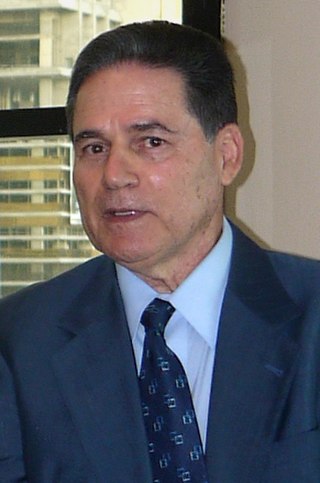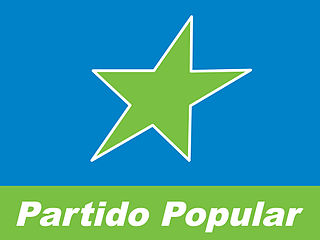Popular Action Party (in Spanish: Partido de Acción Popular, PAPO) was a Panamanian political party.

Spanish or Castilian is a Romance language that originated in the Castile region of Spain and today has hundreds of millions of native speakers in the Americas and Spain. It is a global language and the world's second-most spoken native language, after Mandarin Chinese.

Panama, officially the Republic of Panama, is a country in Central America, bordered by Costa Rica to the west, Colombia to the southeast, the Caribbean Sea to the north, and the Pacific Ocean to the south. The capital and largest city is Panama City, whose metropolitan area is home to nearly half the country's 4 million people.
A political party is an organized group of people, often with common views, who come together to contest elections and hold power in the government. The party agrees on some proposed policies and programmes, with a view to promoting the collective good or furthering their supporters' interests.
Established by urban, middle-class social democrats in 1982. [1] “In July 1982 it joined a number of other small parties, including the PDC, in branding the "deposition" of President Aristides Royo by the National Guard as "going beyond the legal and institutional frameworks set up by the National Guard itself”. [2] The PAPO vehemently opposed the Manuel Noriega-led National Democratic Union coalition in the Panamanian general election, 1984 and ran its own candidate, Carlos Iván Zúñiga, for president. [3] In an incident that he blamed on the military, PAPO leader Zúñiga was kidnapped and beaten in August 1984. Three months later the party was legally deregistered. [4]

Aristides Royo Sánchez was President of Panama from October 11, 1978 to July 31, 1982, when he was pressured to resign by the military.

Manuel Antonio Noriega Moreno was a Panamanian politician and military officer who was the de facto ruler of Panama from 1983 to 1989. He had longstanding ties to United States intelligence agencies; however, he was removed from power by the U.S. invasion of Panama.







